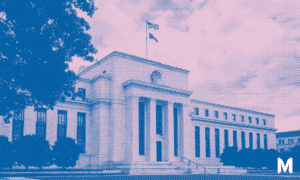Turkey’s year-over-year inflation rate hit 78.62% in June, sparking worries that the country might slip into hyperinflation, which is traditionally defined as an inflation rate of 50% per month.
The loss of purchasing power is being felt by many Turks, which have fled to other foreign currencies like the US dollar and Euro to protect their savings. However, Turkey saw a huge increase in bitcoin and crypto users since the crisis began.
According to SimilarWeb, a website analytics platform, over 6.37% of Binance’s total website visitors come from Turkey. Given the dire economic situation that the country is in, it’s no surprise that people are looking for alternative ways to protect their wealth.
During periods of heightened inflation or hyperinflation there is usually a flight to stronger currencies or hard assets. Governments historically responded to these types of crises with capital controls to prevent a complete collapse of the currency.
This tends to result in people resorting to black markets to acquire foreign currencies or circumvent price controls.
The Turkish Finance Minister announced in a recent Tweet that he had met with CZ, the CEO of Binance:
Details about what was discussed are still unknown. There have been rumors that Binance is planning to acquire a Turkish cryptocurrency exchange.
But given that Binance is seeing strong demand from Turkish customers, it makes sense that Zhao has an interest in fostering his relationship with Turkey and positioning Binance in a way that can serve Turkish customers better.
How Turkey will respond to the current inflation rate of almost 80% and deal with the flight to hard assets is another question. In the past, the president of El Salvador Nayib Bukele had met with the president of Turkey.
Whether Bukele has successfully orange-pilled Erdoğan, or whether the Turkish president has more sinister plans and will deploy the usual strategies to deal with hyperinflation, such as price controls and capital controls, remains to be seen.




